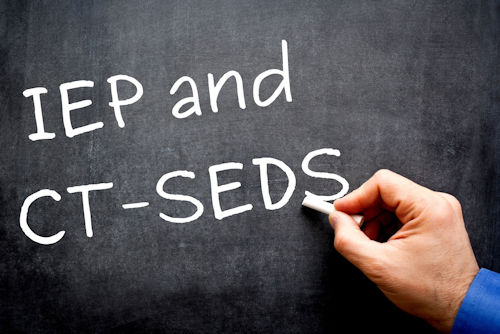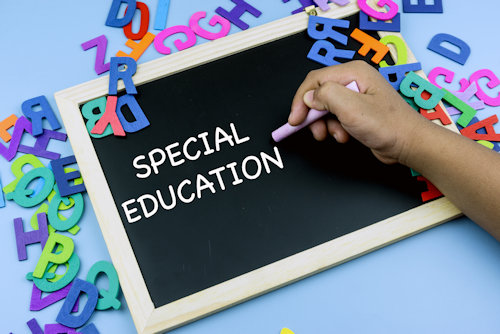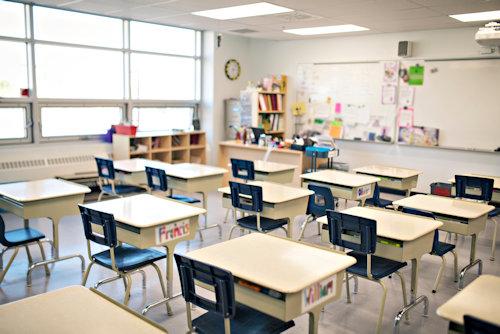More Information and Resources
This section has resources and information related to the Individualized Education Program (IEP) and its development process.
CPAC Recorded Webinars
Getting to Know Your Child's IEP (Individualized Education Program)
CT Has a New IEP!
IEP Nuevo
Learning Modules
Individualized Education Program – A Guide for Parents & Families
Programa Individualizado de Educacion – Guia para Padres y Familias
Document Resources
General – A Good Place To Start
The following documents provide general information on the IEP, including
the Planning and Placement Team (PPT) meeting process and parent and
student rights.
Referral to Determine Eligibility for Special Education and Related Services
Timeline and Memo on Initial Evaluation
A Parent’s Guide to Special Education in Connecticut
Una guía de educación especial para los padres de Connecticut 2021
Procedural Safeguards Notice Required Under IDEA Part B
Manual de Garantías Procesales
Guide to Terms
Acronym Key
Coming Soon! Disability Category Key
Beyond the Basics
The resources below are for those looking to go beyond the basics and
to a higher level of information with documents from the CT State
Department of Education (CSDE).
CT State Department of Education Eligibility Documents
CSDE Specific Learning Disability and SLD/Dyslexia
For Deaf and Hard-of-Hearing Students
Language and Communication Plan
Annotated Language and Communication Plan
Language and Communication Plan (LCP) FAQ
CSDE Connecticut Student Assessment Main Page
CT Alternate Assessment (CTAA)
Frequently Asked Questions and Answers about the Connecticut Alternate Assessment System
CT Alternate Assessment System Participation Guidance for Planning and Placement Teams
Smarter Balanced Assessment
Smarter Balanced Assessment & Individualized Education Plans (IEPs) - FAQs
Assistive Technology
CT Assistive Technology Guidelines
CSDE Assistive Technology Resource Guide
Secondary Transition Resources
Secondary Transition Planning Process
Proceso de Planificación de la Transición Secundaria
Secondary Transition and the IEP
Why must IEP goals be aligned with grade-level standards?
OSEP DEAR COLLEAGUE LETTER on Free and Appropriate Public
Education (FAPE) (November 16, 2015) - This letter clarifies that
individualized education programs (IEP) for children with disabilities
must be aligned with state academic content standards for the grade in
which a child is enrolled.
Questions and Answers (Q&A) on U. S.
Supreme Court Case Decision Endrew F. v. Douglas County School District Re-1 –
See question 12. Each child with a disability must be offered an IEP that is
designed to provide access to instructional strategies and curricula aligned
to both challenging State academic content standards and ambitious goals, based
on the unique circumstances of that child.
ESSA: Key Provisions and Implications for Students with Disabilities - The
December 2015 passage of the
Every Student Succeeds Act (ESSA)
provides states an opportunity to reflect on their current systems of
education, and to identify what is working well, and what improvements
need to be made to develop, refine and implement coherent education
systems that continuously improve so that every child is ready for
college, career and life success.












